Walgreens and CVS Just Gave This Urgent New Warning to Shoppers
The two major drugstore chains have just sounded the alarm on this issue.
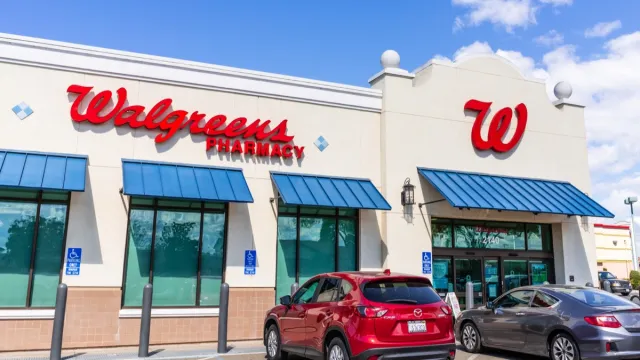
Whether you're picking up prescriptions or on the hunt for a late-night snack, there's a good chance you've found yourself in the aisles of Walgreens or CVS recently. Despite being competitors, the two companies often share headlines because of the many products and services they have in common. In 2020, the stores vowed to stop keeping beauty products aimed at Black customers behind locked cases amid a major push against racially discriminatory practices. Then earlier this year, both Walgreens and CVS joined as partners for a White House initiative and distributed free N95 masks to people across the U.S. Now, Walgreens and CVS are issuing the same urgent warning to shoppers. Read on to find out what the two drugstore chains are alerting customers to now.
READ THIS NEXT: CVS Is Under Fire for Refusing to Let Shoppers Do This.
Walgreens and CVS have had to warn shoppers about shortages in the past.
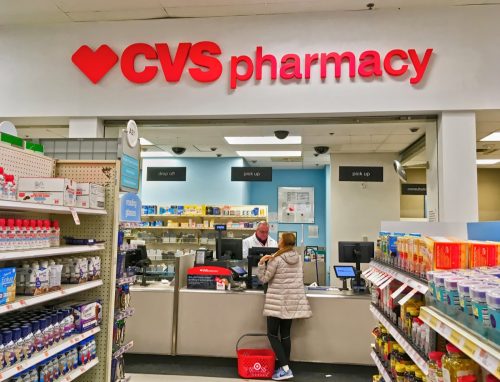
Most of us have become all too familiar with finding products out of stock at our go-to stores over the last two years, whether hoarding or supply chain issues were to blame. Many retailers—including Walgreens and CVS—have had to send out alerts to consumers over the past year, warning them about certain product shortages.
This past winter, both Walgreens and CVS had to inform shoppers that they were placing a purchasing limit on at-home COVID tests as product demand surged during the Omicron surge, and tests became nearly impossible to find in stores. More recently, both companies raised a red flag about a shortage concerning baby formula before ultimately choosing to limit sales of this product in May.
Shoppers are concerned about an out-of-stock product.
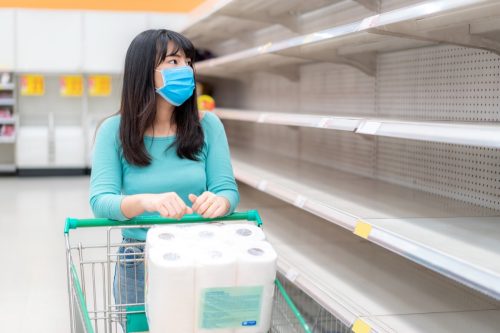
Another product shortage might be hitting the U.S. based on reports from shoppers around the country. In April, one consumer took to Twitter to discuss their trouble with finding certain menstrual products, especially at a responsible price. "I cannot find the feminine hygiene products I like anywhere. I can find them online though for $10 for a box of pads and $17 for a box of tampons?! This isn't some fancy brand," the user wrote, attaching a photo of an empty store shelf meant to be stocked with Tampax tampons.
"Is a female apocalypse coming or something?! Why is every store out of tampons?," another Twitter user asked on May 20. Ohio resident Kimberly Georgekopoulos recently told USA Today that she regularly searches the shelves of CVS, Rite Aid, Walgreens, and Target stores near her home in Silver Lake for boxes of Ultra Tampax for her daughters and considers herself lucky if she finds even one box. "It's just like toilet paper when we had that shortage," she told the news outlet.
RELATED: For more up-to-date information, sign up for our daily newsletter.
Walgreens and CVS just responded to concerns about the shortage.
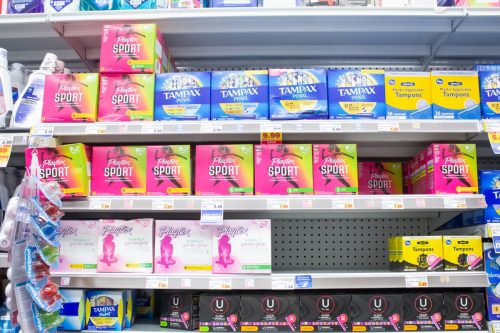
Retailers are now acknowledging the struggle they have had stocking tampons. Walgreens told USA Today on June 8 that retailers are experiencing "some temporary brand-specific shortages in certain geographies" for this product.
"While we will continue to have products at shelf and online, it may only be in specific brands while we navigate the supply disruption," Walgreens told the news outlet in a statement. According to the company, shoppers looking for a specific product should check the inventory for their local store on its website.
CVS also spoke about the issue with USA Today, telling the newspaper that it's trying to keep shelves stocked right now. "We're working with our suppliers to meet the current demand for feminine care products," Matt Blanchette, a spokesman for the drugstore chain, said in a statement. "In the event a local store experiences a temporary product shortage, our teams have a process in place to replenish supply."
There are a number of factors contributing to this shortage.
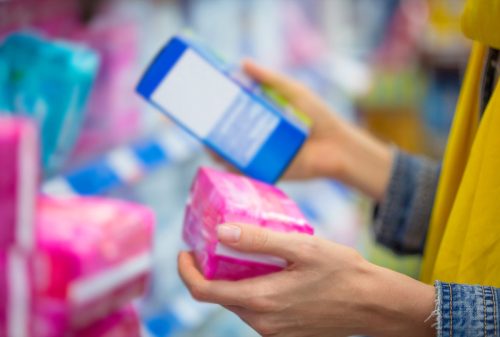
Jennifer White Boehm, director of U.S. Personal Care, Household and Health and Wellness Reports for market research firm Mintel, told USA Today that while the firm does not have an exact estimate of the current tampon shortage, anecdotal evidence "appears to show that there are more empty shelves than there used to be." But what is causing this?
Procter & Gamble (P&G), the company behind the popular tampon brand Tampax, is pointing the finger at increased demand. Cheri McMaster, a spokeswoman for P&G, told Time magazine that "retail sales growth has exploded" for Tampax since July 2020. According to the spokeswoman, demand has risen by 7.7 percent over the past two years.
"We're in a unique time right now when demand for tampons is really high, with people starting to travel again and going back to work and at the same time there is a really tight supply of these products," Arun Sundaram, a senior equity research analyst at CFRA Research, told USA Today.
But as Time noted, P&G revealed in its most recent earnings call that it is "still having trouble sourcing raw materials for feminine care products, getting them to the places that need them, and getting products on trucks to retailers." The manufacturing company announced in April 2022 that it would be raising prices on its feminine care products later this year to accommodate for higher commodity costs, CNBC reported at the time. P&G already raised prices last year, and right now, data from Nielsen IQ indicates that the overall price of feminine care products in the U.S. is already 10.8 percent higher than it was a year ago, per Time.
READ THIS NEXT: Walgreens and CVS Are Under Fire for Selling This Medication to Shoppers.





















